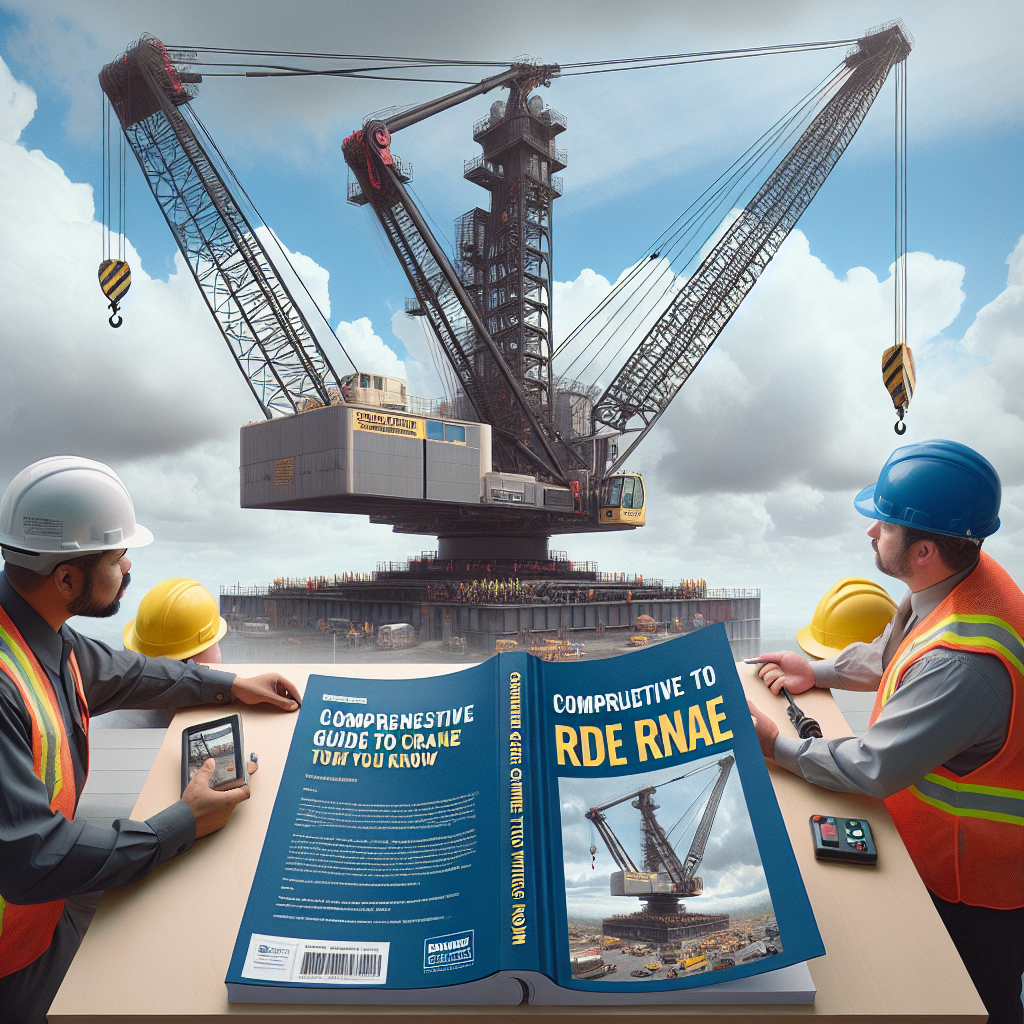Comprehensive Guide to Crane Rental: Everything You Need to Know
The construction and heavy lifting industry is constantly evolving, and so are the demands for efficient, safe, and cost-effective solutions. Crane rental services have emerged as a vital component of modern construction and industrial projects, providing flexibility and access to cutting-edge equipment without the high upfront costs of ownership. In this comprehensive guide, we’ll walk you through everything you should know about renting a crane—from types and benefits to safety tips and how to choose the right crane for your needs.
Why Consider Crane Rental for Your Project?
- Cost Efficiency: Renting a crane eliminates the need for a significant capital investment, helping you manage your project budget more effectively.
- Access to Modern Equipment: Rental companies offer a wide range of cranes, including the latest models equipped with advanced safety features and technology.
- Flexibility: Choose the right crane for each specific task—whether it’s a mobile crane, tower crane, or rough terrain crane—without long-term commitment.
- Reduced Maintenance Responsibility: Maintenance and repairs are typically handled by the rental provider, ensuring equipment reliability and minimizing downtime.
- Expert Support: Many crane rental services include trained operators and technical support, promoting safety and efficiency on-site.
Types of Cranes Available for Rental
Understanding different crane types is crucial when planning your project. Each crane has unique features and is suited for specific tasks and environments. Here are some of the most common options in crane rental:
| Crane Type | Best For | Key Features |
|---|---|---|
| Mobile Cranes | General construction, short-term lifts | Versatile, easily transported, quick setup |
| Tower Cranes | High-rise buildings, urban sites | High lifting capacity, reaches great heights |
| Rough Terrain Cranes | Off-road, uneven surfaces | Four-wheel drive, maneuverable, robust design |
| Crawler Cranes | Heavy lifting on soft ground | Tracks for stability, high lifting capacity |
| Truck-Mounted Cranes | Road transport, quick mobilization | Mobility, no assembly required |
How to Choose the Right Crane Rental Service
-
Assess Your Project Requirements:
- Weight and size of loads
- Site accessibility and terrain
- Height and reach needed
- Duration and frequency of lifts
-
Check Provider Credentials:
- Licenses, certifications, and insurance
- Experienced, certified crane operators
-
Evaluate Equipment Fleet:
- Modern, well-maintained cranes
- Availability of the required crane type and capacity
-
Safety Standards:
- Adherence to OSHA and industry safety guidelines
- Comprehensive safety protocols and training
-
Support and Flexibility:
- 24/7 technical support
- Rapid response for emergencies or breakdowns
Expert Tip: Always visit the job site with your crane rental provider before finalizing the rental to ensure the crane chosen matches the specific site conditions and lifting needs.
Safety Considerations When Renting a Crane
Safety is a top priority in any crane operation. Here’s how you can ensure a secure lifting environment when using a crane rental service:
- Verify that all operators are properly certified and experienced.
- Inspect the crane and rigging equipment before use.
- Follow load chart guidelines and never exceed rated capacities.
- Maintain clear communication between the ground crew and crane operator.
- Establish exclusion zones to keep unauthorized personnel away from lifting areas.
- Conduct pre-lift safety meetings and risk assessments.
Frequently Asked Questions About Crane Rental
How much does crane rental cost?
The cost of renting a crane depends on several factors, such as the type and size of the crane, the duration of the rental, location, and whether an operator is included. Generally, daily rates for smaller mobile cranes start at a few hundred dollars, while larger or specialized cranes can cost thousands per day. Always request a detailed quote from your chosen rental company.
Is it better to rent or buy a crane?
For most construction projects, renting is more cost-effective, especially if you only need a crane occasionally. Renting allows you to access the latest equipment with minimal upfront investment and no maintenance responsibilities.
Do crane rental companies provide operators?
Many crane rental services offer certified operators as part of their package. This ensures safe and efficient operation, especially for complex lifts.
What documents are required to rent a crane?
You typically need proof of insurance, a valid business license, and, if not hiring an operator, evidence of operator certification. Some projects may also require additional site-specific documentation.
Conclusion: Elevate Your Project with Professional Crane Rental
Whether you’re building a skyscraper, installing heavy machinery, or managing a complex industrial project, crane rental services provide the flexibility, safety, and expertise needed to ensure success. By choosing a reputable provider, assessing your requirements carefully, and prioritizing safety, you can maximize efficiency and minimize risk on your job site. Stay ahead in your industry by leveraging the power of modern cranes—without the burden of ownership.
Keywords: Crane rental, mobile crane hire, construction equipment rental, heavy lifting solutions, tower crane rental, certified crane operators, industrial crane rental, lifting services, crane safety tips, rental fleet, project planning, equipment inspection, job site efficiency, rigging services, site safety, OSHA compliance.
